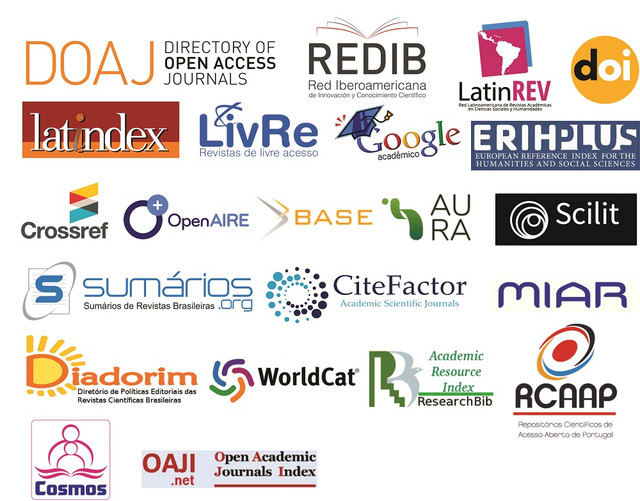INTEGRATING ARTIFICIAL INTELLIGENCE INTO THE PHARMACEUTICAL PROCESS: CHALLENGES AND OPPORTUNITIES
DOI:
https://doi.org/10.59087/biofarma.v4i1.35Keywords:
Artificial Intelligence, Pharmaceutical Process, innovationAbstract
The integration of Artificial Intelligence (AI) into the pharmaceutical process represents a transformative shift in how drugs are designed, tested, and brought to market. AI technologies, such as machine learning and natural language processing, enable pharmaceutical companies to analyze vast datasets, uncover patterns, and make informed decisions more efficiently than traditional methods. One of the key challenges in this integration is the need for high-quality data; the success of AI algorithms heavily relies on the accuracy and comprehensiveness of the information fed into them. Additionally, regulatory compliance and data privacy are significant concerns that require careful navigation. Despite these challenges, the opportunities presented by AI in the pharmaceutical sector are substantial. AI can expedite drug discovery, optimize clinical trial designs, and personalize treatment plans, ultimately leading to improved patient outcomes. Moreover, AI-driven predictive analytics can help in anticipating market trends and consumer needs, allowing companies to stay competitive. As the industry evolves, collaboration among stakeholders—including tech firms, regulatory agencies, and healthcare providers—will be critical to harness the full potential of AI. By embracing this technological advancement, the pharmaceutical industry can enhance efficiency, reduce costs, and bring innovative therapies to patients more rapidly.
Downloads
References
Adelusi, T. I., Oyedele, A.-Q. K., Boyenle, I. D., Ogunlana, A. T., Adeyemi, R. O., Ukachi, C. D., Idris, M. O., Olaoba, O. T., Adedotun, I. O., Kolawole, O. E., Xiaoxing, Y., & Abdul-Hammed, M. (2022). Molecular modeling in drug discovery. Journal of Molecular Structure, https://doi.org/10.1016/j.imu.2022.100880
Aggarwal, A., Tam, C., Wu, D., Li, X., & Qiao, S. (2023). Artificial Intelligence–Based Chatbots for Promoting Health Behavioral Changes: Systematic Review. Journal of Medical Internet Research, 25, e40789. https://doi.org/10.2196/40789
Alharbi, S.; Attiah, A.; Alghazzawi, D. Integrating Blockchain with Artificial Intelligence to Secure IoT Networks: Future Trends. Sustainability 2022, 14, 16002. https://doi.org/10.3390/su142316002
Amann, J., Blasimme, A., Vayena, E. et al. Explainability for artificial intelligence in healthcare: a multidisciplinary perspective. BMC Med Inform Decis Mak 20, 310 (2020). https://doi.org/10.1186/s12911-020-01332-6
ANVISA. (2023). "Regulação de Tecnologias Inovadoras na Saúde." Agência Nacional de Vigilância Sanitária.
Borhani DW, Shaw DE. The future of molecular dynamics simulations in drug discovery. J Comput Aided Mol Des. 2012 Jan;26(1):15-26. https://doi.org/10.1007/s10822-011-9517-y
Bortolini, V. S., & Colombo, C. (2024). Artificial Intelligence in Medicine: the need to see beyond. Brazilian Journal of Law, Technology and Innovation, 2(1), 71-89. https://doi.org/10.59224/bjlti.v2i1.71-89
Dourado, D. A., & Aith, F. M. A. (2022). The regulation of artificial intelligence for health in Brazil begins with the General Personal Data Protection Law. *Revista de Saúde Pública*, 56. https://doi.org/10.11606/s1518-8787.2022056004461
Danhof, M., Klein, K., Stolk, P., Aitken, M., & Leufkens, H. (2018). The future of drug development: the paradigm shift towards systems therapeutics. Drug Discovery Today, 23(12), 1990-1995. https://doi.org/10.1016/j.drudis.2018.09.002
FDA. (2023). "Artificial Intelligence/Machine Learning in Software as a Medical Device." Food and Drug Administration.
Harrer, S., Shah, P., Antony, B., & Hu, J. (2019). Artificial intelligence for clinical trial design. Trends in pharmacological sciences, 40(8), 577-591.
Hutson, M. (2024). How AI is being used to accelerate clinical trials: From study design to patient recruitment, researchers are investigating ways that technology could speed up the process. Nature Index. https://doi.org/10.1038/d41586-024-00753-x
Kim HR, Sung M, Park JA, Jeong K, Kim HH, Lee S, Park YR. Analyzing adverse drug reaction using statistical and machine learning methods: A systematic review. Medicine (Baltimore). 2022 Jun 24;101(25):e29387. https://doi.org/10.1097/MD.0000000000029387
LOPES, R. M. A., & LIMA, E.. (2019). DESAFIOS ATUAIS E CAMINHOS PROMISSORES PARA A PESQUISA EM EMPREENDEDORISMO. Revista De Administração De Empresas, 59(4), 284–292. https://doi.org/10.1590/S0034-759020190406
Lu X, Chen M, Lu Z, et al. Artificial intelligence tools for optimising recruitment and retention in clinical trials: a scoping review protocol. BMJ Open 2024;14:e080032. https://doi.org/10.1136/bmjopen-2023-080032
Rech N, Farias MR. Regulação sanitária e desenvolvimento tecnológico: estratégias inovadoras para o acesso a medicamentos no SUS. Ciênc saúde coletiva [Internet]. 2021 Nov;26 (11):5427–40. Available from: https://doi.org/10.1590/1413-812320212611.03512021
Ravina, Enrique. The evolution of drug discovery: from traditional medicines to modern drugs. John Wiley & Sons, 2011.
Russell, S. J., & Norvig, P. (2016). Artificial intelligence: a modern approach. Pearson.
Vora LK, Gholap AD, Jetha K, Thakur RRS, Solanki HK, Chavda VP. Artificial Intelligence in Pharmaceutical Technology and Drug Delivery Design. Pharmaceutics. 2023 Jul 10;15(7):1916. https://doi.org/10.3390/pharmaceutics15071916
Wen, Y., Cao, Z., Zhang, Y., Wu, L., Wang, Z., Dai, C., ... & Bo, X. (2022). Drug-Target Graph based Recurrent Network for Drug Combination Prediction.
Yadav N, Pandey S, Gupta A, Dudani P, Gupta S, Rangarajan K. Data Privacy in Healthcare: In the Era of Artificial Intelligence. Indian Dermatol Online J. 2023 Oct 27;14(6):788-792. https://doi.org/10.4103/idoj.idoj_543_23
Zhu, H. (2020). Big data and artificial intelligence modeling for drug discovery. Annual Review of Pharmacology and Toxicology, 60, 573-589. ttps://doi.org/10.1146/annurev-pharmtox-010919-023324
Downloads
Published
How to Cite
Issue
Section
License
Copyright (c) 2024 Biofarma - Multidisciplinary Scientific Journal of Biology, Pharmacy and Health

This work is licensed under a Creative Commons Attribution 4.0 International License.
You have the right to:
*Click on the license image above for more details.



